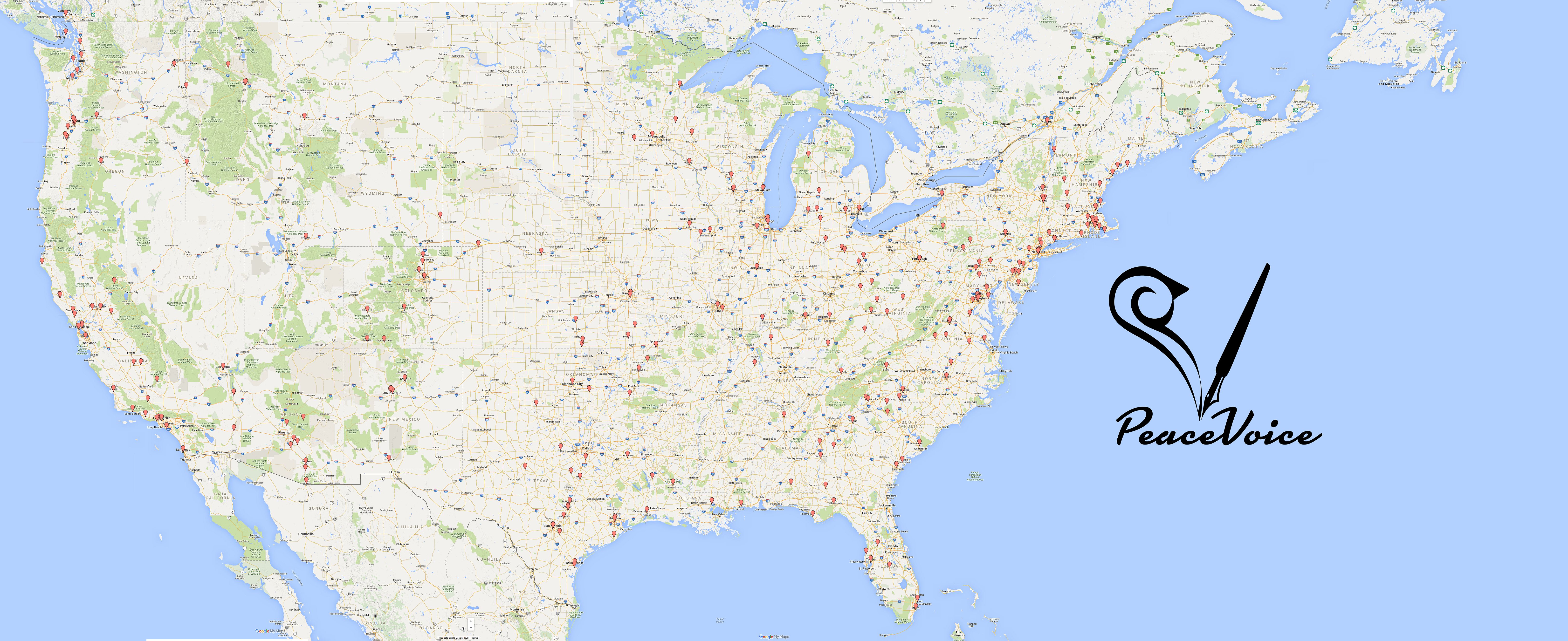A united world must break out of prison
Published 12:40 am Saturday, May 2, 2020

- PeaceVoice
|
Getting your Trinity Audio player ready...
|
At a time when the president wants to reopen the economy — but not the borders! — it’s time to grab ahold of the moment and start groping in our minds beyond what’s politically possible and start envisioning serious social change.
Life is fervid chaos right now for those who are on the front lines of the pandemic, from hospital workers to grocery store clerks, not to mention those who are sick and dying — and those who are helpless and vulnerable, such as immigrants and prisoners — but for most people life has slowed down to a matter of staring out the window . . . or into the future.
Many of the life-shattering issues people are facing right now are manmade, and often result from an allegiance to the worst of who we are. How can this change? This is certainly the time to begin asking this question — and I mean globally, not just nationally.
One place such a question can begin is with the creation of social hell, a.k.a., incarceration. This is pretty much a global phenomenon. Most governments see one of their crucial roles as defining and dehumanizing their enemies and, when possible, eliminating or, at least, imprisoning the ones so defined — for the safety of the rest of us, of course.
And while it’s easy to condemn the way this process is carried out in authoritarian regimes, where many people are incarcerated (or murdered) simply for their opinions, most people probably believe in the necessity for such systems over on their own side of the border. Come on, they’re criminals! They have to be held accountable! And indeed, the system is protected by what you might call psychological barbed wire, also known as cynicism: What’s the alternative? Love?
The problem is that, because few countries are investing in different — more complex — forms of social safety, the prison system is growing globally to a serious level of insanity: “At least 125 countries hold more prisoners than their correctional systems were designed for,” the New York Times recently reported, noting that at least 20 countries have double the number of inmates their prison infrastructure is equipped to handle, a problem suddenly at the core of global attention because of the pandemic. Any prison sentence is a possible death sentence.
The Times illustrated the matter by noting what things are like in Brazil. The leader of a prison-reform movement in São Paulo told a particularly haunting story: “One woman received a handwritten note from her husband, who reported running a high fever and having body aches. Lacking enough food, he told her, had prompted him to eat clumps of toilet paper and toothpaste. ‘I’m scared I will die in prison,’ the note said. ‘I’m starving in this damn place.’”
Grotesque and unnerving as this detail of prison life is — being forced “to eat clumps of toilet paper and toothpaste” — such horrors are not limited to Brazil. Hell is hell. What this Times story fails to address, for instance, are the conditions over of this side of the border.
“The United States locks up more people than any other country in the world, largely because of harsh and wrong-headed policies,” writes Jesse Jackson. “Fifty-five thousand are detained in jail awaiting trials, too poor to pay for their freedom under the current cash bail system that is prevalent in many states.”
And “48,000 children are incarcerated on any given day,” Jackson notes, often for such “offenses” as truancy and homelessness. Or simply for being illegal human beings. Some 2,000 undocumented minors are sitting in detention centers for the crime of trying to get into the United States, some of whom have tested positive for COVID-19.
The pandemic, which endangers all of humanity, is throwing a spotlight on these outposts of hell, which are, according to the U.N. special rapporteur on the human rights of migrants, “overcrowded and unsanitary.” And Amnesty International, as Common Dreams reported, has stated that “detaining anyone solely for migration-related reasons during a global pandemic is cruel, reckless, and deadly.”
Is this really the best we can do? Surely now — as we see how the consequences of our various systems of incarceration endanger everyone, not just the poor souls trapped in its jaws — surely now . . . is the time to open our minds, open our souls, to saner ways of maintaining social order. The prison system doesn’t work. To say this is not to shrug and advocate doing nothing at all, but to rethink the matter at a level deeper than the cynics believe is possible.
C.J. Rhodes, president of Clergy for Prison Reform, points out that April is Second Chance Month, a time to rethink the broken criminal justice systems, and goes on to say:
. . . I hope this particular moment grants us all a deeper understanding of the decades-long tragedy of our country’s mass incarceration crisis — and the terrible toll it takes on families and communities. Second Chance Month calls us to extend redemption and expand opportunity to our neighbors who have been incarcerated, many of whom, in truth, never had a first chance to begin with. Mass incarceration separates and devastates millions of families every day of the year, and destabilizes communities, all while failing to make our neighborhoods any safer.
This is time and effort utterly wasted. Why not invest in repairing the harm caused not only by crime but by the criminal justice system?
“This kind of deep investment in neighbor-love and community-building,” Rhodes writes, “would pay dividends for our neighborhoods right now, and for generations to come.”
And the time to realize this is now.
Robert Koehler (koehlercw@gmail.com), syndicated by PeaceVoice, is a Chicago award-winning journalist and editor. He is the author of Courage Grows Strong at the Wound.






